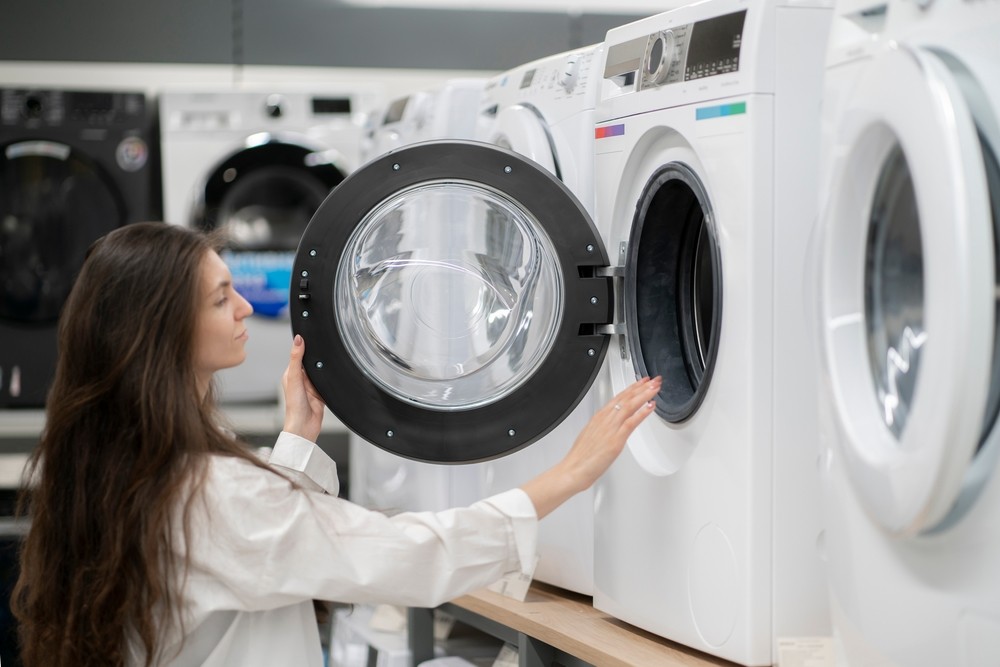A significant portion of household utility bills can be attributed to the energy and water consumption of home appliances, with washing machines being among the most frequently used. From frequent loads of laundry to heavy-duty washing cycles, these appliances play a crucial role in daily household chores but can also contribute significantly to rising energy costs. As the cost of living continues to increase, many consumers are becoming more conscious of their household expenditures and are actively seeking ways to reduce their utility bills without sacrificing convenience.
One of the most effective ways to achieve this is by investing in energy-efficient washers. These modern appliances are designed with advanced technology to minimize electricity and water usage while maintaining optimal washing performance. Not only do they help cut down on monthly expenses, but they also reduce overall environmental impact by conserving precious resources. In addition to financial savings, energy-efficient washers often come with enhanced features such as faster spin cycles, improved detergent efficiency, and quieter operation, making laundry tasks more efficient and hassle-free.
By making an informed decision and choosing the right energy-efficient model, homeowners can experience both immediate and long-term benefits, from lower energy consumption and reduced carbon footprint to improved laundry care and convenience. Whether upgrading an outdated washer or making a first-time purchase, you might spend a little more upfront, but the savings to be had in the long run far outweigh the initial additional costs.
The Importance of Energy Efficiency
Energy efficiency is more than a buzzword; it is a practical approach to managing resources effectively. Energy-efficient washers are designed to use less electricity and water while maintaining, or even enhancing, cleaning performance. This means that the average household can save hundreds of dollars annually on utility bills. Beyond monetary savings, energy-efficient washers play a significant role in reducing the strain on natural resources, leading to a lower environmental footprint.
Technological Advancements in Washers
Modern washers have undergone significant advancements, allowing them to clean clothes more efficiently while consuming less energy and water. Here are some key technological features that make these appliances stand out:
- Advanced Motor Systems: Energy-efficient washers often come equipped with high-efficiency motors such as direct drive ones. These motors are designed to use less energy, reduce noise, and extend the lifecycle of the appliance.
- Smart Integration: Many contemporary washers are equipped with smart technology, enabling users to control their machines remotely via smartphone apps. Such systems optimize wash cycles based on load size and fabric type, enhancing efficiency. Some models even predict maintenance needs, preventing costly repairs.
- Improved Drum Designs: Updated drum designs, such as those featuring a horizontal axis, allow for greater tumbling action, which enhances water extraction and reduces drying time. This results in less energy being used by both the washer and the dryer.
- Temperature Control: Advanced temperature control features ensure that only the necessary amount of hot water is used when needed. Some models incorporate load-sensing technologies to adjust the water temperature according to the fabric’s requirements, saving additional energy.
- Eco-Friendly Cycles: Energy-efficient washers frequently include eco-cycles specifically designed to minimize water and energy use. Although these cycles might take a bit longer than standard ones, they ensure optimal cleaning while being gentler on resources.
Financial Benefits of Energy-Efficient Washers
Investing in an energy-efficient washer can lead to significant cost savings over its lifespan. Key financial benefits include:
- Reduced Utility Bills: By consuming less electricity and water, energy-efficient washers can substantially decrease household utility bills. It’s estimated that using such washers can save up to 25% on energy bills annually.
- Rebates and Incentives: Many regions offer financial incentives for purchasing energy-efficient appliances. Consumers can take advantage of federal or state rebates, which can considerably offset the upfront cost of a new washer.
- Longer Lifespan: Modern, energy-efficient washers often come with durable parts and advanced technology that mitigate wear and tear. Consequently, these machines tend to have longer lifespans, reducing the need for frequent replacements, which translates to savings for consumers.
- Resale Value: Homes equipped with energy-efficient appliances, including washers, tend to have higher resale values. Owners could potentially recover some of their initial investments when selling their property.
The Environmental Impact
By choosing energy-efficient washers, consumers also contribute to environmental conservation efforts. Here’s how these machines make a positive impact:
- Lower Carbon Emissions: Reduced energy consumption means lower electricity demand. Since a significant portion of electricity generation involves burning fossil fuels, lower demand results in reduced carbon emissions.
- Water Conservation: Energy-efficient washers are designed to use significantly less water than traditional machines, aiding in water conservation efforts, which is especially beneficial in regions prone to droughts.
- Reduced Detergent Use: Many modern washers are engineered to require less detergent, reducing chemical runoff into water systems and minimizing pollution.
Factors to Consider When Purchasing an Energy-Efficient Washer
Choosing the right energy-efficient washer requires careful consideration of several factors. Here’s what consumers should contemplate:
- Energy Star Rating: Look for washers with high Energy Star ratings, as these are independently certified to save energy without sacrificing performance.
- Capacity Needs: Families with larger laundry loads might need bigger capacity washers. It’s essential to balance capacity requirements with energy efficiency to ensure optimal savings.
- Spin Speed: Washers with higher spin speeds effectively remove more water from clothes, which can reduce drying time significantly.
- Noise Levels: For households where noise is a concern, particularly in open-plan spaces or apartments, selecting a washer with a low noise rating can enhance user comfort.
- Budget: While energy-efficient models may have a higher upfront cost, the long-term savings in utility bills often outweigh the initial price difference. Consumers should evaluate their budget with long-term savings in mind.
The Future of Energy-Efficient Washers
Manufacturers are focusing on integrating more cutting-edge technologies that cater to sustainability, user convenience, and improved performance. Emerging trends include the integration of artificial intelligence to optimize washing cycles and resource usage, development of internet-of-things (IoT) capabilities for better integration with smart-home systems, and the exploration of alternative energy sources such as solar power to further reduce carbon footprints.
These innovations are anticipated to further drive down the operating costs of washers, providing even more value to consumers committed to reducing their ecological impact and utility bills.
Energy-efficient washers stand as testament to the growing alignment between technological advancements and sustainable living. For consumers, making an educated decision when purchasing a washer not only implies mindful spending but also signifies a commitment to conserving resources for future generations. By embracing these modern appliances, households not only enjoy substantial savings and convenience but also play a pivotal role in fostering a more sustainable world.



